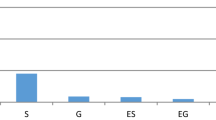Abstract
Corporations, as influential players in a global environment, face increased pressure of the society and governments to assume responsibility for the consequences of their corporate actions. Although information technologies advance rapidly, data collection still heavily relies on manual input, static reports and to a broad extent the integration of stakeholders is not yet the general rule. Data-driven technologies like Participatory Sensing methods, Linked Open Data practices or Geographical Information Systems are useful methods to collect, aggregate and disseminate information. This paper outlines the problem scope, the solution approach and the research plan for my doctoral thesis which explores the potential of these technologies to improve the transparency of corporate sustainability using a design-science based approach. Experiences gained by designing and evaluating IT artifacts are expected to bring new insights about the relation of IT and corporate sustainability where existing research is still sparse.
Access this chapter
Tax calculation will be finalised at checkout
Purchases are for personal use only
Preview
Unable to display preview. Download preview PDF.
Similar content being viewed by others
References
Abbot, J., Chambers, R., Dunn, C., Harris, T., de Merode, E., Porter, G., Townsend, J., Weiner, D.: Participatory gis: opportunity or oxymoron? PLA Notes-International Institute for Environment and Development (1998)
Bizer, C., Heath, T., Berners-Lee, T.: Linked data-the story so far. International Journal on Semantic Web and Information Systems (IJSWIS) 5(3), 1–22 (2009)
Bonanni, L., Ebner, H., Hockenberry, M., Sayan, B., Brandt, N., Csikszentmihàlyi, N., Ishii, H., Turpeinen, M., Young, S., Zapico Lamela, J.L.: Sourcemap. org: First application of linked and open lca data to support sustainability (2011)
Brundtland, G.H.: Report of the World Commission on environment and development: “our common future”. United Nations, New York (1987)
Dyllick, T., Hockerts, K.: Beyond the business case for corporate sustainability. Business Strategy and the Environment 11(2), 130–141 (2002)
Elliot, S.: Transdisciplinary perspectives on environmental sustainability: a resource base and framework for it-enabled business transformation. MIS Quarterly 35(1), 197–236 (2011)
García, R., Gil, R.: Publishing xbrl as linked open data. In: CEUR Workshop Proceedings, vol. 538. Citeseer (2009)
Goldman, J., Shilton, K., Burke, J., Estrin, D., Hansen, M., Ramanathan, N., Reddy, S., Samanta, V., Srivastava, M., West, R.: Participatory sensing: A citizen-powered approach to illuminating the patterns that shape our world. Foresight & Governance Project, White Paper (2009)
Hansen, U., Schrader, U.: Corporate social responsibility als aktuelles thema der bwl. Betriebswirtschaft-Stuttgart 65(4), 373 (2005)
Hevner, A.R., March, S.T., Park, J., Ram, S.: Design science in information systems research. MIS Quarterly 28(1), 75–105 (2004)
Hondros, C.: Standardizing legal content with owl and rdf. In: Linking Enterprise Data, pp. 221–240. Springer (2010)
Keating, G.N., Rich, P.M., Witkowski, M.S.: Challenges for enterprise gis. URISA Journal 15(2), 25–39 (2003)
Larrazábal, A., McCall, M.K., Mwampamba, T.H., Skutsch, M.: The role of community carbon monitoring for redd+: a review of experiences. Current Opinion in Environmental Sustainability 4(6), 707–716 (2012)
Le-Phuoc, D., Hauswirth, M.: Linked open data in sensor data mashups. In: Proc. Semantic Sensor Networks, p. 1 (2009)
McCall, M.K., Minang, P.A.: Assessing participatory gis for community-based natural resource management: claiming community forests in cameroon. The Geographical Journal 171(4), 340–356 (2005)
Melville, N.: Information systems innovation for environmental sustainability. Management Information Systems Quarterly 34(1), 1–21 (2010)
Mun, M., Reddy, S., Shilton, K., Yau, N., Burke, J., Estrin, D., Hansen, M., Howard, E., West, R., Boda, P.: Peir, the personal environmental impact report, as a platform for participatory sensing systems research. In: Proceedings of the 7th Int. Conference on Mobile Systems, pp. 55–68. ACM (2009)
Münstermann, M.: Corporate Social Responsibility: Ausgestaltung und Steuerung von CSR-Aktivitäten, vol. 48. Gabler Verlag (2007)
Okolloh, O.: Ushahidi, or’testimony’: Web 2. 0 tools for crowdsourcing crisis information. Participatory Learning and Action 59(1), 65–70 (2009)
Peffers, K., Tuunanen, T., Gengler, C.E., Rossi, M., Hui, W., Virtanen, V., Bragge, J.: The design science research process: a model for producing and presenting information systems research. In: Proceedings of the First International Conference on Design Science Research in Information Systems and Technology (DESRIST 2006), pp. 83–106 (2006)
Peterová, R., Hybler, J.: Do-it-yourself environmental sensing. Procedia Computer Science 7, 303–304 (2011)
Petrini, M., Pozzebon, M.: Managing sustainability with the support of business intelligence: Integrating socio-environmental indicators and organisational context. The Journal of Strategic Information Systems 18(4), 178–191 (2009)
Resch, B.: People as sensors and collective sensing-contextual observations complementing geo-sensor network measurements. In: Krisp, J.M. (ed.) Progress in Location-Based Services. Lecture Notes in Geoinformation and Cartography, pp. 391–406. Springer, Heidelberg (2013), http://dx.doi.org/10.1007/978-3-642-34203-5_22
Save the Redwoods League: About save the redwoods (2013), http://www.savetheredwoods.org/
Tripathi, N., Bhattarya, S.: Integrating indigenous knowledge and gis for participatory natural resource management: state of the practice. The Electronic Journal of Information Systems in Developing Countries 17 (2004)
UN Global Compact: Formation of the international integrated reporting committee (iirc) (2010), http://www.unglobalcompact.org/news/57-08-02-2010
Watson, R., Boudreau, M., Chen, A.: Information systems and environmentally sustainable development: energy informatics and new directions for the is community. Management Information Systems Quarterly 34(1), 23–38 (2010)
Wheeler, D., Elkington, J.: The end of the corporate environmental report? or the advent of cybernetic sustainability reporting and communication. Business Strategy and the Environment 10(1), 1–14 (2001)
Zapico Lamela, J.L., Sayan, B., Bonanni, L., Turpeinen, M., Steve, Y.: Footprinted. org–experiences from using linked open data for environmental impact information. In: Proceedings of the 25th EnviroInfo Conference–Innovations in Sharing Environmental Observations and Information, pp. 1–9. Schaker-Verlag (2011)
Author information
Authors and Affiliations
Editor information
Editors and Affiliations
Rights and permissions
Copyright information
© 2013 Springer-Verlag Berlin Heidelberg
About this paper
Cite this paper
Madlberger, L. (2013). Development of Information Systems for Transparent Corporate Sustainability Using Data-Driven Technologies. In: Demey, Y.T., Panetto, H. (eds) On the Move to Meaningful Internet Systems: OTM 2013 Workshops. OTM 2013. Lecture Notes in Computer Science, vol 8186. Springer, Berlin, Heidelberg. https://doi.org/10.1007/978-3-642-41033-8_3
Download citation
DOI: https://doi.org/10.1007/978-3-642-41033-8_3
Publisher Name: Springer, Berlin, Heidelberg
Print ISBN: 978-3-642-41032-1
Online ISBN: 978-3-642-41033-8
eBook Packages: Computer ScienceComputer Science (R0)




